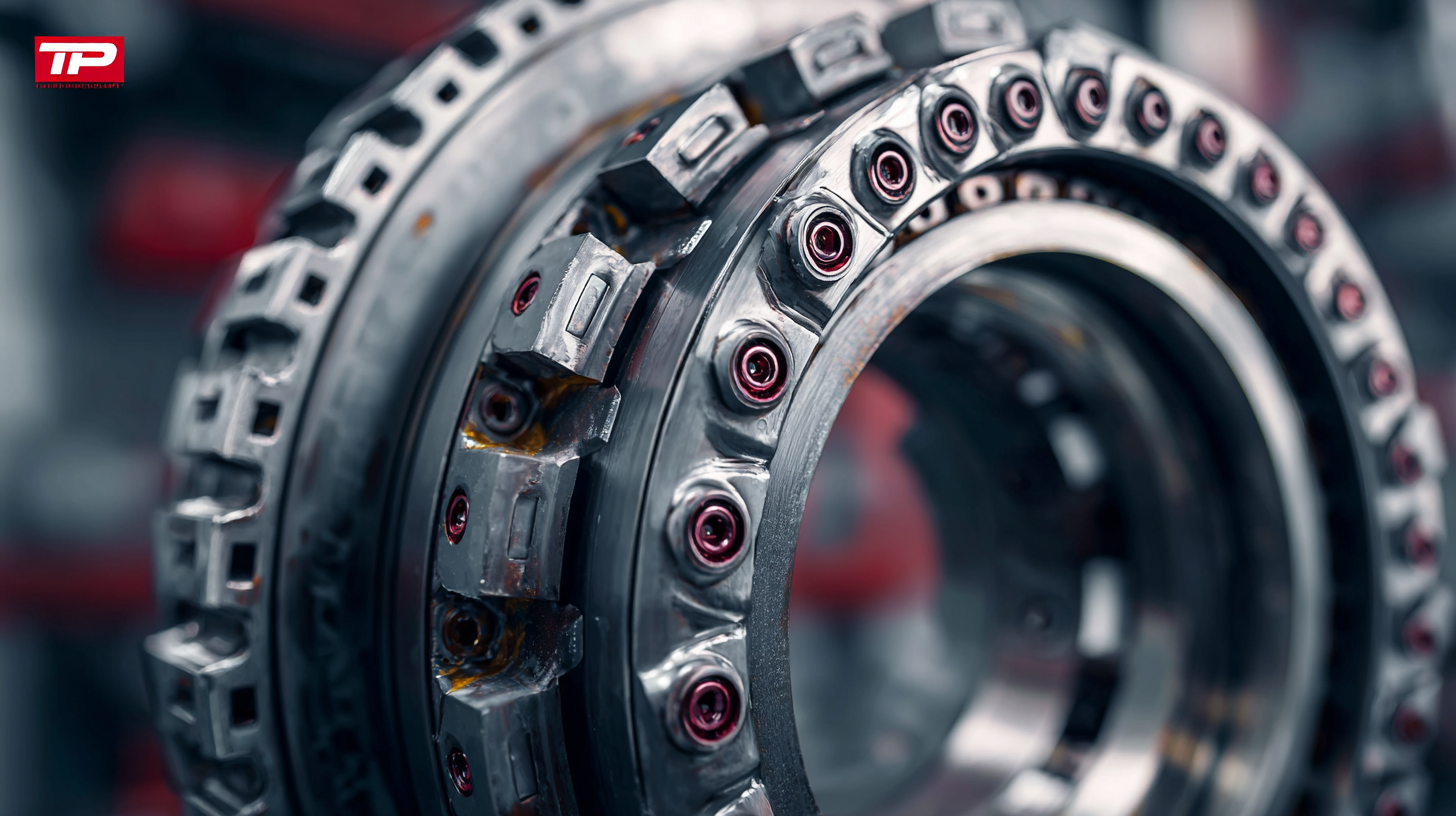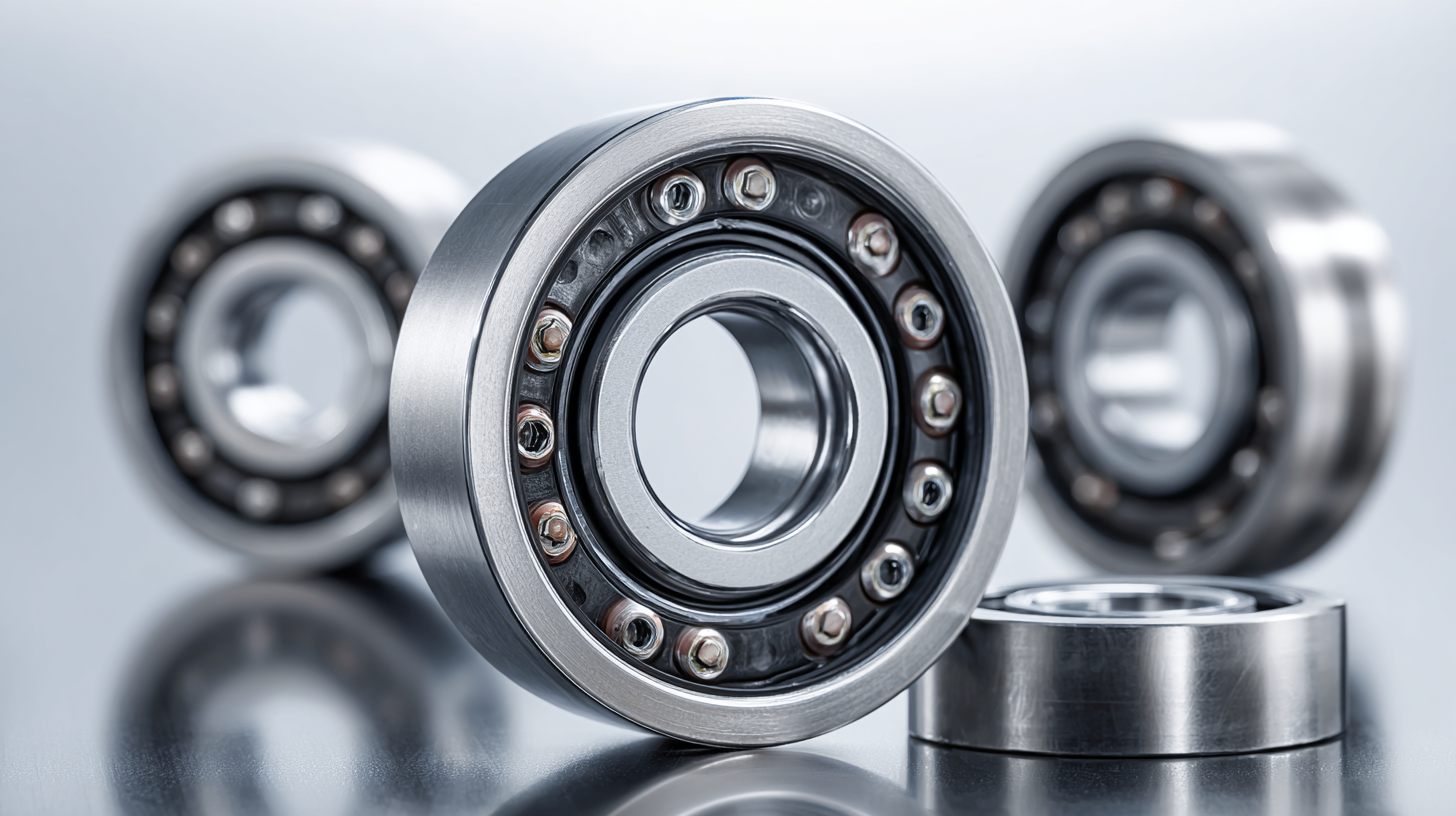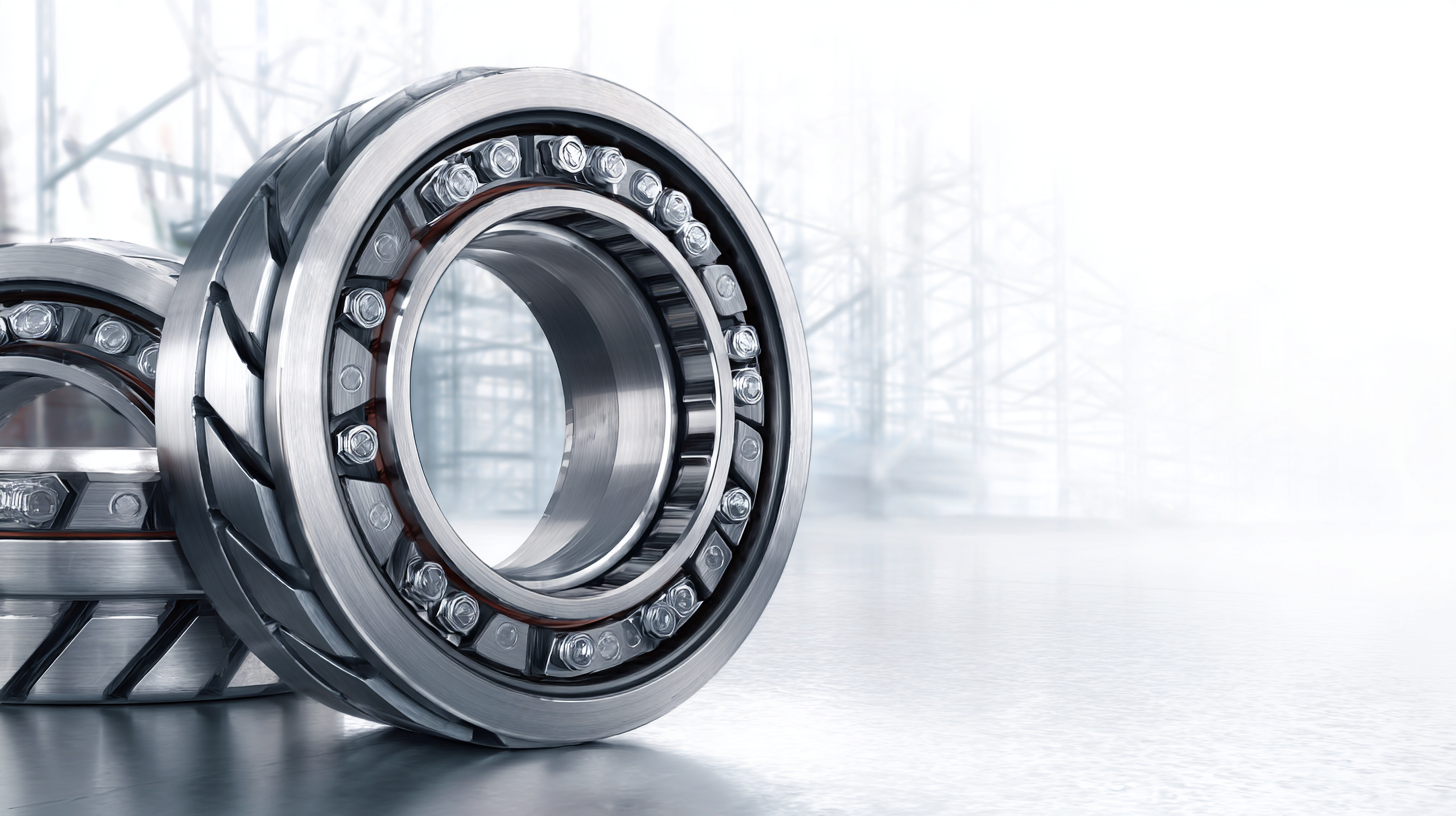In today's competitive market, the demand for high-quality components like Tapered Roller Wheel Bearings is skyrocketing, as they play a crucial role in enhancing the efficiency of global supply chains. According to a report by MarketsandMarkets, the global bearing market is projected to grow from USD 77.24 billion in 2020 to USD 96.62 billion by 2026, primarily driven by the automotive sector's emphasis on performance and durability. Tapered Roller Wheel Bearings are particularly sought after for their ability to handle both radial and axial loads, making them ideal for various applications, including trailers, trucks, and passenger vehicles. As China continues to upgrade its manufacturing capabilities and standards, it is poised to become a leading exporter of these essential components, ensuring quality products are at the forefront of the global market. With the right investment and focus on innovation, leveraging Tapered Roller Wheel Bearings can significantly optimize supply chain efficiency, driving growth and sustainability in the industry.

Tapered roller wheel bearings play a crucial role in enhancing supply chain performance by improving the reliability and efficiency of transportation systems. These bearings facilitate smooth rotation under heavy loads, reducing friction and wear. As a result, they are ideal for various applications, from automotive to industrial machinery. When wheel bearings are optimized for performance, they directly contribute to lower downtime and maintenance costs, effectively streamlining operations throughout the supply chain.
Moreover, understanding the nuances of tapered roller wheel bearings can lead to better decision-making in procurement and logistics. By choosing high-quality bearings that fit specific operational demands, companies can enhance vehicle performance, ensure safety, and prolong the lifespan of equipment. This understanding not only aids in immediate logistical effectiveness but also fosters long-term partnerships with suppliers who prioritize quality, thus reinforcing the overall robustness of the global supply chain. In essence, investing in the right tapered roller wheel bearings is not just a technical choice; it’s a strategic move towards supply chain excellence.
 The selection of appropriate materials is crucial in maximizing the durability and efficiency of tapered roller wheel bearings. According to a report by the International Organization for Standardization (ISO), the choice of bearing materials can significantly affect their resistance to wear, corrosion, and fatigue. For instance, high-performance steel alloys or ceramic materials can enhance the lifespan of bearings by as much as 30%, substantially reducing maintenance costs and downtime in supply chains.
The selection of appropriate materials is crucial in maximizing the durability and efficiency of tapered roller wheel bearings. According to a report by the International Organization for Standardization (ISO), the choice of bearing materials can significantly affect their resistance to wear, corrosion, and fatigue. For instance, high-performance steel alloys or ceramic materials can enhance the lifespan of bearings by as much as 30%, substantially reducing maintenance costs and downtime in supply chains.
Tip: When selecting bearings, consider materials that are engineered for specific applications to improve their endurance. Incorporating advanced surface treatments can also mitigate friction and enhance the overall performance under diverse operational conditions.
Moreover, the impact of material selection extends beyond the durability of the bearings themselves; it also influences energy efficiency. A study conducted by the American Society of Mechanical Engineers (ASME) indicates that bearings made from lightweight, high-strength materials can decrease overall system weight, leading to improved fuel efficiency in automotive applications. This can reduce operational costs and carbon footprints, proving beneficial for companies focused on sustainability.
Tip: Regularly assess your material choices to align with the latest technological advancements in bearing design, which can lead to better performance and reduced resource consumption over time.
The dimensions of tapered roller wheel bearings play a crucial role in determining their load capacity and rigidity, which in turn affects their performance in various applications, including those involved in global supply chains. Recent studies have highlighted that both experimental and numerical analyses can reveal the intricate relationship between bearing dimensions and their mechanical properties. For instance, the stiffness and displacement characteristics of roller bearings directly correlate with their reliability and longevity. As loads vary, understanding how dimensions influence these parameters can lead to better design choices and optimized performance.
In practical applications, including the analysis of angular contact ball bearings, it is evident that increasing race thickness enhances the ability to handle higher contact stresses. However, this also brings challenges such as large deformations occurring in the outer race, which can impact the overall integrity of the bearing. By focusing on these design principles and employing advanced analytical methods, manufacturers can develop tapered roller bearings that not only meet the rigorous demands of modern supply chains but also ensure superior functionality and extended service life, thereby unlocking significant advantages in operational efficiency.
| Bearing Model | Inner Diameter (mm) | Outer Diameter (mm) | Width (mm) | Dynamic Load Rating (kN) | Static Load Rating (kN) | Rigidity (Nm/μm) |
|---|---|---|---|---|---|---|
| TRB-100 | 50 | 90 | 30 | 55 | 75 | 12 |
| TRB-200 | 60 | 100 | 40 | 70 | 90 | 15 |
| TRB-300 | 70 | 110 | 45 | 85 | 110 | 18 |
| TRB-400 | 80 | 120 | 50 | 100 | 130 | 20 |
The logistics industry is continuously evolving, with a focus on maximizing efficiency and minimizing costs. One key component that significantly influences supply chain operations is the quality of tapered roller bearings. By evaluating the cost-benefit ratio of high-quality tapered roller bearings, businesses can make informed decisions that enhance overall performance. These bearings, renowned for their robustness and precision, not only improve the longevity of the machinery they support but also reduce downtime, ultimately leading to lower operational costs.
Tip 1: Prioritize quality over price when selecting tapered roller bearings. Investing in high-quality products can lead to significant long-term savings by minimizing replacement frequency and maintenance needs.
The recent expansion of a tapered roller bearing production facility underlines the growing demand for these components in the automotive sector. With more than half of the operations linked to automotive applications, this expansion reflects an increasing recognition of the bearings' pivotal role in achieving operational excellence in logistics.
Tip 2: Regularly assess the performance metrics associated with your bearing choices to ensure they align with your supply chain goals. Efficient bearings can propel your logistics operations forward, making them more agile and responsive to market demands.
 Tapered roller wheel bearings play a crucial role in enhancing supply chain efficiency through their ability to minimize friction and support high loading capacities. In real-world applications, companies have shifted to these advanced bearings to achieve remarkable productivity gains. For instance, a major logistics provider experienced a significant reduction in equipment downtime after integrating tapered roller bearings into their fleet. The optimized design allowed their cargo vehicles to operate more smoothly and efficiently, directly contributing to faster delivery times.
Tapered roller wheel bearings play a crucial role in enhancing supply chain efficiency through their ability to minimize friction and support high loading capacities. In real-world applications, companies have shifted to these advanced bearings to achieve remarkable productivity gains. For instance, a major logistics provider experienced a significant reduction in equipment downtime after integrating tapered roller bearings into their fleet. The optimized design allowed their cargo vehicles to operate more smoothly and efficiently, directly contributing to faster delivery times.
Another compelling case comes from the automotive industry, where a manufacturer improved its assembly line's performance by selecting the right tapered roller bearings. By carefully analyzing the load and speed requirements of their machinery, they were able to reduce wear and tear significantly, leading to less frequent replacements and lower maintenance costs. As a result, the company not only achieved higher throughput but also enhanced overall reliability within their operations. These case studies demonstrate that the right bearing choices can transform supply chain dynamics, driving both productivity and profitability in today's competitive landscape.
